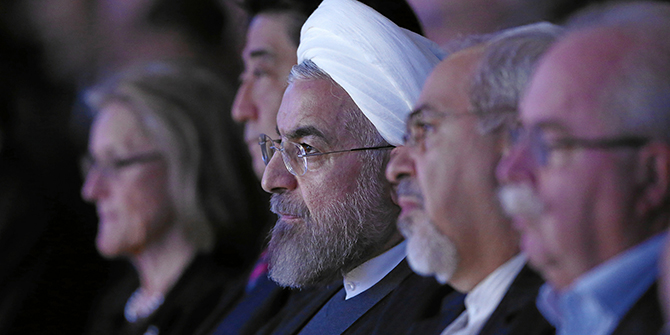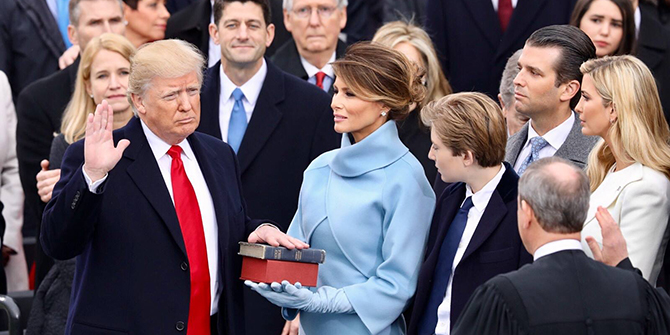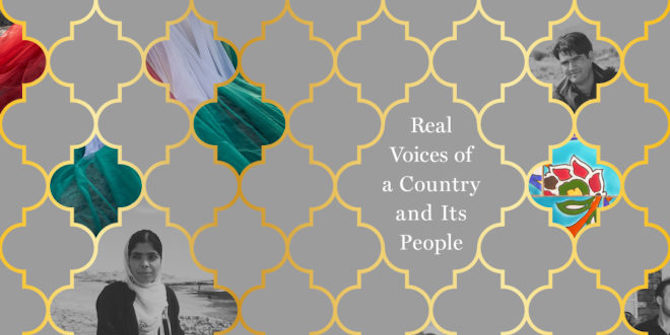by Brian E. Frydenborg

Great relationships tend to bring out the best, while toxic relationships tend to do the opposite. When it comes to relationships between US President Donald Trump and Israeli Prime Minister Benjamin Netanyahu, the Republican Party and Israel’s Likud, and Israel and America overall, we sadly find an enabling toxicity in which darker impulses are magnified in a negative feedback loop.
Israel most certainly sees itself as a singular nation in the Middle East, wholly special and apart from its neighbours, and while it is undeniably unique in many important ways, its tribalism is unimpressively banal in a region rife with tribalism, even if the Israeli version is somewhat less lethal. While some parts of the Middle East continue to avoid the ever-present danger of falling into sectarian and ethnic strife (Lebanon, for example) or may finally be turning a corner after long periods of such (like Iraq), Israeli’s tribalism is only intensifying, as is America’s, the two sharing stunning parallels and disturbing overlaps.
Coming Together Under Similar Circumstances for Similar Goals
Politically, Netanyahu is a cat with nine lives, thus far weathering a series of major scandals that would have toppled any previous Israeli prime minister, a situation resembling Trump’s ability to survive scandals that would have surely consumed his predecessors. This time Netanyahu may pay the price and lose power, though few have made money betting against him in previous elections. It remains to be seen if the upcoming April elections really will be what unseats Netanyahu, who is very close to becoming Israel’s longest-serving prime minister.
His scandals and the test they present for Israel’s fidelity to the rule of law domestically are the closest thing the country has ever experienced to the even more intense crisis in the United States over Donald Trump and his many scandals. Despite predictions and (often hedged) reporting that Special Counsel Robert Mueller’s Russia probe will be winding down quite soon, there are also indications that this is not the case, even as other major and almost certainly very damaging lines of inquiry into possible criminal and ethical misconduct of Trump and his circle are pursued.
On the issues, an incident last autumn that attracted international attention involved Israel trying to ban Arab-American student Lara Alqasem from studying in Israel, even though her visa was approved and she had the support of the relevant Israeli academic institutions. Israel’s Ministry of Strategic Affairs claimed she was a dangerous threat because of her (apparently former) support of the BDS movement to boycott Israel, hardly surprising for someone whose father is of Palestinian descent. It was the Israeli court system that finally stepped in to save Israel from this silly and misguided public relations own-goal, a process with echoes of the far larger fight between the Trump Administration and the US courts over the Muslim (‘travel’) ban that would be similarly damaging to America. Unsurprisingly, the Trump Administration did not even lift a finger in support of American student Alqasem.
Furthermore, the inane politics surrounding the ‘the wall’ for the US southern border bear remarkable similarities to how Trump’s formal recognition of Jerusalem as Israel’s capital played out, with majoritarians spiking the ball to rub in the face of the disempowered exactly who is in charge and who is not, who is included and who is excluded.
Additionally, there is the issue of UNRWA, the main UN agency supporting vulnerable Palestinian refugees from various wars. After forceful advocacy from Jared Kushner, Trump’s Jewish son-in-law and close friend of Netanyahu, and just weeks after Netanyahu had asked Trump to terminate all US funding for the agency (in a manner much like Trump, without even consulting his security and intelligence professionals, many of whom had argued against such a move), Trump did just that.
Another issue in which the worse angels of America’s and Israel’s natures are empowering each other is Iran, with both Team Trump and Team Netanyahu lying in throwing their respective intelligence professionals under the bus when it comes to assessments of Iran’s nuclear activities and capabilities and in the service of pushing for war with the Islamic republic.

Two Wars for the Souls of Two Nations, Each Nation Meddling in the Other’s
In both cases, we are seeing a true war over the souls of these respective nations: will each hold up to their democratic ideals and operate as pluralistic, multi-ethnic, and religiously diverse nations, or will majoritarian ethno-religio-centrism (the rule of law be damned) eclipse the spirits of each nation’s better angels? For Israel, this question is more complicated, as from the beginning it was conceived as a refuge for the Jewish people. Yet the same questions remain pressing and unresolved about whether the laws will be ignored, bent, or destroyed to suit the oppressive whims of the majority and their political leaders in pursuit of the establishment of identity-driven hierarchy ranging from de facto to formal in nature, whether each nation stands to become primarily an ethno-religio-supremacist state (such being the echoes of historical fascism) that abandons the spirit of equality before the law. Even now, both American white Christians and Israeli Jews increasingly throw their ethnic-religious majority status in the face of all other minorities as both nations experience a rise of a range of intolerant behaviours ranging from indifference to how those not in the majority think or feel on one end to outright dehumanising hostility and even violence, including mass murder, on the other. As Israelis consider their support of Trump, they might want to take note that such support empowers forces that foster sharply rising anti-Semitism in the US.
As politics become more extreme in both nations, Netanyahu lies about Iran and falsely tries to associate the Holocaust with Palestinians, just as Trump copies Netanyahu on Iran and perpetuates his own lies about immigrants, declaring a fake ‘national emergency’ over ‘caravans’ (in addition to lying about just about everything else). Both try to downplay or even turn blind eyes towards violent extremism coming from the far-right political bases from which they draw political support.
It’s no wonder that Likud is campaigning with giant building-size billboards of Netanyahu and Trump shaking hands, which the US president has shared on Instagram: Israel is one of a handful of nations where Trump is actually popular (69 percent of Israelis were confident in Trump in 2018 according to Pew, which is roughly an amazing thirty points more popular than he is in America).
Netanyahuism and Trumpism: Heading Hand-in-Hand in the Wrong Direction
I have noted before that tribalism has run amok in both the Middle East and America, and there were even Israeli efforts to interfere in the 2016 US election to help Trump, using methods similar to Russia’s. Under Trump, the US is actively enabling tribalism and extremism in Israel in unprecedented ways, but the enabling role of America goes far beyond the president and his administration. As one example, American evangelical Christians have for years lobbied for and funded (often with tax-exempt donations) Jewish right-wing extremists in Israel, especially the controversial settler community living on (and taking ever more) land internationally recognised as Palestinian. In the latest example, Netanyahu has just allied with the racist far-right extremist party Otzma Yehudit, or Jewish Power, comprised of the acolytes of Meir Kahane. This American-Israeli rabbi’s original party, Kach, was banned in Israel and labelled a terrorist organisation by the US State Department after one of its American-Israeli members, Baruch Goldstein, massacred 29 praying Palestinians at a major West Bank mosque in 1994 (for this atrocity the movement’s followers honour his memory annually at his tomb-shrine).
The coming April election, and whether or not the scandal-ridden Netanyahu remains prime minister (as opposed to serving time in jail), pose major questions about the future and health of Israeli democracy. The same can be said for the 2020 elections in the US regarding Trump and American democracy. One thing is for sure: the relationship between Trump and Netanyahu, and both America’s and Israel’s increasingly extremist conservatives with each other, are not advancing the protection of minority rights, so essential to democracy, or the rule of law, nor are they reducing ethnic and religious tribalism; rather, they are fostering such divisions at home and in their counterparts’ countries in ways that fundamentally threaten both democracy and the rule of law, and will only continue to do so. Whether the decline of each continues, is checked, or reversals commence, only time will tell.
 Brian E. Frydenborg is a freelance writer, academic, and consultant from the greater New York City area. He is based in Amman and specialises in politics, policy, history, democracy, human rights, conflict, humanitarian aid, and international development, researching and writing for a wide variety of outlets and institutions about such topics in the context of the Middle East, the US, and beyond, even in regards to ancient Rome. You can follow him on Twitter @bfry1981 and can see most of his work on his new news website, Real Context News.
Brian E. Frydenborg is a freelance writer, academic, and consultant from the greater New York City area. He is based in Amman and specialises in politics, policy, history, democracy, human rights, conflict, humanitarian aid, and international development, researching and writing for a wide variety of outlets and institutions about such topics in the context of the Middle East, the US, and beyond, even in regards to ancient Rome. You can follow him on Twitter @bfry1981 and can see most of his work on his new news website, Real Context News.







3 Comments